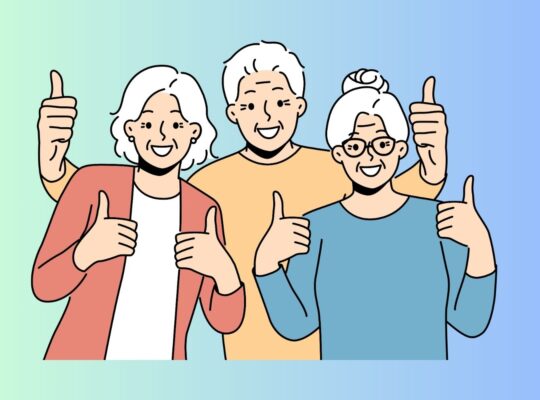HEAL YOURSELF WITH EMOTIONS
What Is A Positive Emotion
It shouldn’t be too complicated a question to answer, but before we continue on the subject, we should ensure we’re on the same page.
A positive emotion is more than just a happy feeling. They play a far more significant role in your life than chasing a momentary pleasure. As do negative emotions of course. There are a lot of different ways people might define the word emotion. Generally speaking, they fall under one of two umbrellas.
- Umbrella One
An emotion is a feeling or state that cannot be aroused at will.
- Umbrella Two
Emotions are responses, attitudes, or reactions to an object, person, event, or situation, similar to a judgment.
The majority of researchers and scholars believe umbrella two is the correct view. They view our emotions as a result. It is something provoked by your action or you being on the other end of an action. What are the implications of embracing one of the umbrellas over another?
For you to understand the role of positive emotions in psychology you don’t have to choose an umbrella to stand under. It doesn’t matter whether you consciously choose the emotion or they come as a result of a type of action. The important thing in psychology is the effect of those emotions.
Now if we narrow down the conversation of emotions to positive emotions, they can be defined in two different ways. These are the most popular ways to define them and they are loosely connected to the umbrellas mentioned above. The belief linked to umbrella one is that positive emotions are intense and pleasant mental experiences. The belief linked to umbrella two is that these response tendencies are short-lived.
It doesn’t particularly matter which definition you prefer or think is the best fit. The most important thing is that you know what emotion you are feeling, what the point or purpose of the emotion is, how you can improve how you experience them (whether in quality or quantity), as well as the effects these positive emotions have on you.
The Power Of Emotion
Think about this.
Are you a half glass full type of person? Do you like to look on the bright side of life?
Or do you see the glass as half empty? Do you look toward the future and see storm clouds settling in for a long stay?
There is much research to suggest a positive mindset and outlook on life can improve both mental and physical health (ref.). The National Institutes of Health has funded many scientists to dig deeper into the link between body and attitude and they have found evidence that certain skills help build emotional wellness.
To be clear, and this is where a lot of people get mixed up, just because you have a positive mindset and outlook on life does not mean you won’t feel negative emotions. You aren’t going to be happy 100% of the time. You will still feel anger, disappointment, and sadness. Our emotions, whether they are negative or positive, should be balanced. They’re adaptive given the correct set of circumstances.
The positive emotions you experience expand your awareness and open you to new ideas. This is what helps you grow and helps you build the toolkit you need to survive. You need negative emotions just as much because with difficult situations come negative emotions. It’s up to you to respond appropriately.
Those negative emotions could lead you into trouble if you spent too much time ruminating. In fact, often, we allow those negative emotions to linger and they are unrelated to what’s going on in the present. We have a terrible habit of allowing past experiences to linger in negative emotions and that can have a dire impact on our future.
If you are emotionally healthy you will still have negative emotions, they will just be few and far between and you will find it much easier to bounce back from challenges. Essentially, the positive emotions you nurture and develop into a positive mindset will help you build your resilience.
The more you do this the better you become at holding on longer to those positive emotions you experience. You became far more adept at appreciating all of the good things and times in your life.
Researchers have consistently found that there’s a link between a positive mental state and improved physical health. This includes a reduction in blood pressure, a lower risk of heart disease, a healthy weight, improved blood sugar, and therefore, a longer life (ref.).
Though some researchers aren’t sure which precedes the other, brain imagining has. Positive emotions trigger the brain’s reward pathways. Specifically, the ventral striatum when someone savors their positive emotions. The longer it lasts the greater the feeling of wellbeing. If this area of the brain is activated consistently it improves health in the body, including lowering stress hormone levels.
In contrast, negative emotions activate the amygdala. It is the amygdala that plays a major role in anxiety and fear. When you recover slowly following a threat you are at greater risk of health issues. To become more resilient to negative emotions and reduce this risk, meditation is an excellent tool. This will help you move into a more positive mindset.
The Language Of Emotion
So, which emotions count as positive emotions? If we were to make a list it would likely be endless. Not every word relates to an emotion as they are understood by scholars. They are generally words that humans use frequently as a way to describe their emotions.
This is a good foundation for understanding positive emotions as we experience them. Before we narrow it down to the top 15 positive healing emotions, we’ll discuss the wider family of positive emotions.
1| Gratitude
When you are grateful you experience a feeling of thankfulness, whether it is all-encompassing or a specific feeling for a person, thing, or situation. Gratitude is often accompanied by emotions like reverence and humility.
2| Hope
Hope is a form of optimism. It is the anticipation of positivity.
3| Interest
Interest is a feeling of fascination or curiosity that captures/demands your attention.
4| Amusement
Lighthearted enjoyment, pleasure, and it often comes with laughter and smiles.
5| Serenity
The peaceful, calm feeling of self-acceptance.
6| Pride
Pride is a sense of pleasure and approval of yourself after you have completed a task, achieved a goal, improved a skill, etc.
7| Altruism
This generally refers to acts of generosity and selflessness toward others. It can also describe the feeling you experience when you do help others.
8| Elevation
This is the feeling you experience when you see people engage in acts of generosity and kindness. Their behavior spurs you into taking similar actions.
9| Relief
Relief is the feeling of happiness that you experience when you avoid a negative outcome or when an uncertain situation revolves.
10| Satisfaction
Satisfaction is the contentment and pleasure that comes from fulfilling a need or achieving something.
11| Affection
Affection is an emotion attached to something or someone special. It comes with gaining pleasure from being in their company.
12| Cheerfulness
Bright, upbeat happiness. It’s like everything is a-okay and it is all going your way.
13| Confidence
When you have a strong sense of self-belief and self-esteem you often feel confident. It might be a universal emotion, but it could also be related to a specific activity or situation.
14| Enthusiasm
It is the excitement that is generally accompanied by engagement and motivation.
15| Eagerness
Eagerness is a positive emotion akin to enthusiasm, but less intense. It’s the feeling of being ready.
16| Contentment
It’s a feeling of comfort, peace, low-key happiness, and a sense of wellbeing.
17| Optimism
Hopeful, positive, an emotion that bolsters your outlook on the future. Optimistic people believe that everything will work out.
18| Enjoyment
You get a sense of pleasure from what’s going on around you, whether it’s a social gathering, leisure activities, or someone’s company.
19| Happiness
Contentment and pleasure that you gin from things as they are. It’s a general sense of enthusiasm or enjoyment of and for life.
20| Euphoria
The intense, all-encompassing sense of happiness or joy. This is often the state we slip into when something incredibly exciting or extremely positive happens. It generally is a result of something that happens to you, but it can also be in response to good news for others.
21| Love
Love might just be the strongest positive emotion that any human experiences. It’s a deep, enduring affection, accompanied by a willingness to put someone else’s needs ahead of yours. It can be directed towards a person (lover, spouse, child), a group of people (your family, friend group, or even a sports team), a pet, or humanity as a whole!
While the list above is not comprehensive, it captures the most common positive emotions that humans experience. Now we’re going to go into deeper detail about the 15 positive emotions that can help heal you and your life.
The Top 15 Positive Healing Emotions
1| Love
We just told you it was the most intense positive emotion so it makes sense that it would take pride of place on the top 15 positive healing emotions list. Why?
When you love someone or something, you have the urge to care for them and to be affectionate. This is an emotion that can also be accompanied by feelings of affection and attraction. It can also be accompanied by romantic feelings. Love generally involves an approachable attitude, includes nurturing towards the object of our love, and feelings of intimacy too.
You can love people. You can love pets. You can even love objects or products that provide you with pleasurable sensory stimulation. Or an object that you have invested time and effort into. You can also love using a product, it may represent someone you love or their love for you. It can enable you to express that love or for others to express that love to you.
How can this positive emotion help you heal?
It’s a strong emotion. It represents the best of humanity, it highlights our affection, kindness, and compassion. It’s unselfish, it’s pure, and it can be directed toward others as well as self-directed. Perhaps more importantly, it’s important for your health.
It can boost your self-esteem which will of course improve your self-care (ref.). It’s the key to loving yourself and engaging in positive behaviors that benefit your health and life.
Love is also an excellent antidote for stress. It counteracts the stress chemical cortisol, fighting the fight or flight response. Lower levels of stress can help you avoid high blood pressure, depression, diabetes, and heart disease. It also triggers the body to release more oxytocin, the feel-good chemical that boosts your immune system.
Likewise, it decreases inflammation through your body which can relieve pain as well as increase the strength of your immune system. A study from Ohio State University College of Medicine found that lonely people were more likely to contract illnesses (ref.). Romantic love has even more benefits. Sleeping next to someone can make you relax which helps contribute to better sleep.
If you want to incorporate more love in your life and enjoy its healing benefits, then go out of your way to be more giving. Try to bring joy to other’s lives. Be generous with your time and energy, whether you do so through altruism or volunteering.
If you have a romantic partner, increase your affection. Hold hands, hug them often, affection has a way to relax you immediately, improve your mood, and reduce stress. You can hug your friends and family members too!
Finally, self-love is something you can do whether you have others around you or not. Show yourself kindness, do nice things for yourself, and just love yourself.
2| Respect
If you boil it down to its bare bones, respect is when you regard someone as good, valuable, or even worthy. Respect is an emotion often accomplished by a feeling of approval or acceptance. It comes with the recognition of the person or an endorsement of them.
You can respect a person. You can respect an object. You can even respect a designer or user of said product. Such as when people respect the inventors of great products or a specific athlete that performs well in their chosen sport. Additionally, you can feel respected, but how does that relate to healing?
We have an innate need for connection with others. It’s natural to feel an urge to bond and understand the people around us. With that, comes a profound need to feel seen and understood. Respect is a big part of that. When you’re in a romantic relationship, you want your partner to respect your beliefs, boundaries, and overall sense of self. You want the same from members of your family, the people you work with, and even those you encounter on your daily travels.
When you explore people and get to know their perspective you grow more adept at respecting both yourself and others. More importantly, you grow comfortable with respecting the differences in people. It gives you an insight into how you live your life and it may even highlight areas in need of correction. So, by extending your respect to others you improve your habits and therefore improve your lifestyle. This can be a healing experience.
Humans are constantly changing as they experience different aspects of life, which means needs change. It’s important that you respect yourself as well as others and the world around you. When you have a high level of self-respect you feel more open to taking opportunities, taking calculated risks, and you are more likely to fulfill your potential. You don’t need others for validation. It also means you won’t accept it when someone treats you poorly.
How will you know you’re being respected and respectful? Your behavior will always give you the clues you need. Open-mindedness, a positive attitude, being considerate, and offering support are all healthy behaviors that speak to respect. It’s what you should offer to others and it’s what you should expect from others.
3| Kindness
Kindness is your tendency to contribute or protect someone or something’s wellbeing. Kindness, like sympathy, involves benevolence and empathy. The difference is that it is not related to the misfortune of others. Much like love, kindness involves affection and warmth, but it doesn’t necessarily involve romantic feelings, feelings of attraction, or intimacy.
You can be kind to a person, you can be kind to an object, or you can use a product to show someone else kindness. How does kindness to or with an object work? If a product shows you kindness it does so by nurturing you or making a task easier. It can also symbolize the kindness of someone else.
The beauty of kindness is that it can be taught. If you know that you aren’t as kind as you should be, whether it’s to yourself or others, you can correct it. When you do, there’s more good news because kindness is contagious! When you start showing others kindness, they tend to pay it forward and return it as well. One good deed can create a snowball effect.
How is it healing? Kindness increases the production of oxytocin. Oxytocin has long been dubbed the love hormone and it can help improve your heart health. It also boosts your optimism levels and your self-esteem. That oxytocin can also help you feel energized and that energy and positivity can help you feel calmer and less anxious. Kindness can make you happier, which is great because kindness is another healing emotion! All of those benefits contribute to a longer life. What more could you want? Kindness brings pleasure, it relieves pain, stress, anxiety, blood pressure, and depression.
How can you bring more kindness into your life? You can volunteer but do something that you enjoy. It might be that you treat your friend to dinner. You could further your love of sports by coaching a local sports team. If you have certain skills, you can share them! Try to keep others in mind and simply be kind.
4| Sympathy
Sympathy is when you feel the urge to identify with someone else’s state or feelings. They are experiencing distress or misfortune and your emotional response includes compassion and sympathy. It’s part of the altruistic emotion as it comes with genuine concern for other’s well-being.
This isn’t particularly complicated. If you want to be a more sympathetic person, then you need to take steps to connect with others. While some people are empathetic enough to have a strong response to others, some of us need to work at those connections.
It’s natural for many people to only extend sympathy to people they know. Yet so many people have the capacity to sympathize with the whole of humanity. Some people are profoundly impacted emotionally by the suffering of others, no matter who they are.
There are certain elements necessary to offer sympathy. You have to pay attention to them which means you need to limit distractions. Your ability to perceive other emotions is also important because their need is important.
For example, if a child falls and grazes their knee they likely do not need the same level of sympathy as a child who has fallen and broken their leg. It’s important that you respond with the correct level of sympathy.
Sympathy is intrinsically linked with negative experiences. For example, an injury, illness, death, or divorce. You can express sympathy verbally by speaking to them directly or sending a card. You can express sympathy non-verbally by extending physical contact or changing your tone of voice. While it is innate it can also be learned. People model sympathy as they have seen it which means you can adjust your ability no matter how old you are.
5| Admiration
Admiration can be a positive healing emotion when you feel admiration for others, if you are too deep into admiring yourself… well, it can take on a different feeling. When you admire someone (or something) you value or estimate them highly. It might be because of their achievements, it could be due to their worth, or it might be down to their character.
With admiration often comes amazement, esteem, and a feeling of being impressed. It elevates the person you admire and, in some cases, it can put space between you and that person. While admiration can include feelings of affection or warmth it doesn’t have to.
A healthy level of admiration can help you heal because you tend to want to emulate the positive behaviors that the object of your admiration models. While you shouldn’t compare yourself to others, it can be helpful to have a positive role model who inspires you to do and be better.
6| Fascination
When you feel fascinated you feel an urge to investigate or explore. It’s driven by eagerness, specifically a keenness to improve one’s understanding. It involves focused attention and exploratory behavior.
How is fascination healing? Well, if you are interested in a person or a subject and you explore that topic then you are likely to learn more about it. Knowledge is power and improving your knowledge of any subject, person, or topic is going to help you improve personal growth. The next time you feel the urge? Follow through!
7| Surprise
When an unexpected event occurs, you are generally surprised in response. It might be because your expectation has been exceeded or you’ve had unexpected good news. When surprise is a positive emotion it’s because the unexpected situation or event is pleasurable or desirable. It is often accompanied by the feeling of amazement. It also tends to interrupt your current activity.
Surprise isn’t something that you can control, you can’t go out of your way to engineer more surprises. That doesn’t mean it isn’t healing. How is it healing? Well, surprises are a great reminder that you have to roll with the punches. For every wonderful surprise, you are likely to receive a not-so-wonderful surprise. It’s a good lesson and an exercise in building resilience which can be healing.
8| Worship
Worship is the impulse to honor something or even idolize it. With this emotion comes feelings of devotion and loyalty. It is distant from love because with worship comes idolization of the object of worship. Another feature of worship is the implication that one is subordinate to the object of worship.
Research has long linked religion and healing, but worship doesn’t necessarily have to be religious in nature. You might worship nature, for example. Ultimately, it’s the sense of being connected to something greater than yourself and feeling as though that is grounding you, spurring you on. You can practice worship on your terms and benefit from the positive health benefits.
9| Enchantment
The feeling of captivation. It is delightful or even extraordinary. There is a similarity between enchantment and surprise, but enchantment requires an infringement of a belief or expectation that’s beyond comprehension.
Children are often enchanted and that’s something that we lose touch with as we grow older. If it happens to adults, it happens rarely. It isn’t something you can seek out necessarily, but it’s certainly something you can lean into when it occurs.
We are often too busy or too distracted to take notice of the enchanting things that surround us. Slow down and take notes. That alone is enough to improve your health and happiness.
10| Hope
The anticipation of happiness, the belief that the future holds positive experiences. We gain pleasure from the future we assume. We expect good things to happen, we believe that positive emotions, happiness, and joy are coming. Hope is generally associated with optimism. People who have a natural bias towards hope can find happiness in most situations because they hold onto the belief that things will get better.
How is hope healing? In several ways! Not only does it encourage healthy behaviors, but it also protects against stress, anxiety, and depression (ref.). Hope has long been linked with habits that contribute to health and happiness.
11| Serenity
It’s calmness, it’s a sense of contentment, the very absence of pain. Serenity is often linked to those who have reached a high state of spirituality. You feel at one with a higher power or the universe and you are not a victim of fate but the master of it.
With serenity comes peace and contentment, those are two things associated with relaxation. Therefore, serenity means a lower stress level which is great for both your brain and body.
12| Gratitude
If you are looking for an emotion that strongly correlates with happiness, then it is gratitude. Be grateful for what you have and in doing so you actively focus on the positives in your life.
If you’re focused on positives, then you aren’t obsessing over what you don’t have or what you still want. By expressing gratitude, it helps to enforce your internal positive attitude. It also tends to breed altruism, which of course is its own positive emotion.
The good news on gratitude is that it is something you can actively pursue. You can start by keeping a journal. Write in it’s daily, make a list of all the incredible things in your life that you are grateful for. If you aren’t a big list lover, you can simply write a paragraph or two about what positive experiences you had that day.
How is that healing? Well, positivity feels good, and expressing your gratitude is a great exercise in filling yourself with positivity. So, gratitude brings you the same health benefits as optimism. There is also the added benefit of reduced aggression and improved empathy, thus stronger relationships (ref.).
13| Joy
Joy lives on the spectrum of happiness, whether it’s gentle comfort or euphoric bliss. It’s one of the most common emotions and perhaps the easiest to identify. It’s short-term so it’s one we seek out.
As it is linked to the feeling of being happy it is also linked with the health benefits of being happy (ref.).
14| Inspiration
Inspiration often comes after you hear a powerful speech, or when you see someone performing a particular skill masterfully and then being inspired to act as a result. Inspiration is motivational. It’s a powerful emotion that spurs change.
The greatest benefit of inspiration is its ability to radically change your life (ref.). It can take you from apathy to excellence. It highlights possibilities and then? Anything can happen!
15| Awe
Awe. That feeling you get when standing atop a summit viewing a stunning sunset or a spectacular view. You may feel it when you stand before a famous painting marveling at the artist’s skill. Or seeing your favorite band perform and watching the lead guitarist take an extended solo. Awe can be spiritual as well. The beauty of awe is that it comes from being open and ready to experience the world’s wonders, whatever they are.
According to a study from the University of California, Berkeley, awe can improve both physical and mental health. It can reduce the risk of depression, heart disease, type 2 diabetes, and arthritis (ref.). The health benefits related to awe mirror that of those associated with regular exercise and eating a healthy balanced diet.








